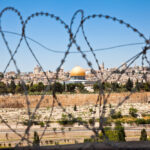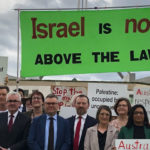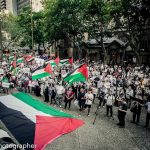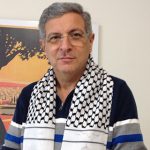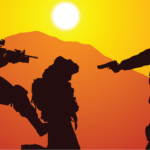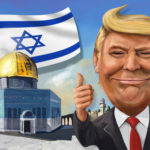War Resumes in Occupied Western Sahara: An Interview With Polisario’s Kamal Fadel
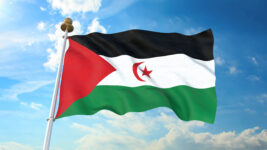
Sahrawi Arab Democratic Republic (SADR) president and Polisario Front leader Brahim Ghali ended the 1991 ceasefire agreement between his Sahrawi independence forces and the Moroccan army, which has occupied most of Western Sahara since 1975.
Ghali brought the 29-year-long truce to an end on 13 November, following Moroccan troops launching an attack into a demilitarised buffer zone to disburse Sahrawi demonstrators who were protesting an illegal road the occupying force had been constructing near Guerguerat.
In the 1980s, Morocco built a 2,700-kilometre-long sand wall – known as the Berm – across the Western Sahara. It includes a heavily patrolled and landmine-filled buffer zone. Moroccan forces are stationed along the resource-rich west, while the Indigenous Sahrawi people’s SADR lies to the east.
The Polisario Front – the Sahrawi people’s independence army – has resumed its armed struggle against its long-term oppressor Morocco following the recent incident.
A brief history of Western Sahara
The Spanish occupied Western Sahara from the mid-1880s until 1975. And as the European nation abandoned its occupation, it handed control of the territory over to a joint administration run by Morocco and a French-backed Mauritania.
A war then broke out between the Sahrawi people’s Polisario Front and Moroccan and Mauritanian forces. This conflict saw the French regime in Mauritania overthrown, and that country went on to recognise Western Sahara as an independent nation.
Although the war with Morocco continued, with the support of some western countries, primarily France.
The 1991 UN-brokered ceasefire left Morocco in control of most of the region, with the truce agreement including the stipulation that a referendum on Sahrawi self-determination be held.
However, the official vote has never happened. And today, the Polisario Front continues to run the SADR, which accounts for around 20 percent of territory, and is also referred to as the Liberated Zone. While Morocco controls the rest of the region, with the illegally built Berm separating the two.
US imperialism
The end of the ceasefire came just days after US president Donald Trump decided to recognise Moroccan rule over the entire Western Sahara. This is the first time a nation has gone on the record as officially accepting the occupying force as having a legitimate claim to rule.
The Polisario Front established the SADR in 1976. Since then, 84 nations have recognised Western Sahara as an independent country. And the Sahrawi Arab Democratic Republic remains a full member state of the African Union.
Sydney Criminal Lawyers spoke to the Polisario Front’s Australian representative Kamal Fadel about the resumption of war, the oppression of the Sahrawi people over the last 45 years, and what he expects to transpire in the coming year.
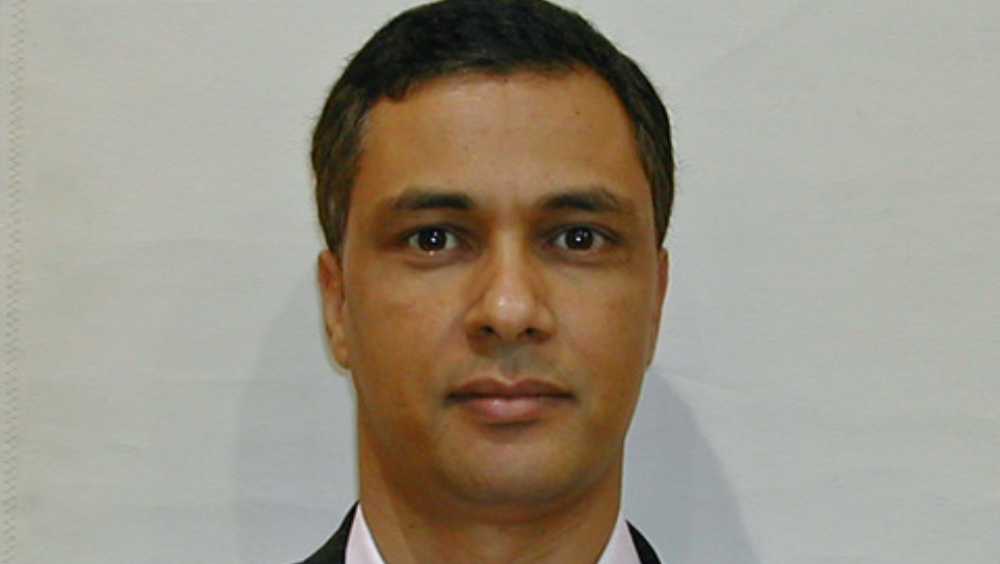
Firstly, Brahim Ghali, president of the Sahrawi Arab Democratic Republic (SADR) recently issued a decree calling off the 1991 ceasefire with Morocco.
Kamal, why did Ghali do this now? And what’s the significance of the move?
President Ghali issued the decree calling off the ceasefire following Morocco’s grave violation of the terms of the ceasefire on 13 November 2020.
Moroccan troops attacked Sahrawi civilians who were peacefully protesting in front of the illegal crossing at el Guerguerat, which was a flagrant violation of the Military Agreement No. 1 signed by both parties under the auspices of the United Nations.
The move is significant and a testament to the frustration of the Sahrawi with Morocco’s constant violations of the ceasefire, and its unrelenting obstruction of the peace process and the referendum on self-determination.
This frustration extends to the inaction of the UN and its apparent capitulation to the Moroccan authorities.
This move means that the people of Western Sahara have decided to continue their legitimate armed struggle for the liberation of their homeland.
We believe that military action is the only option left to us after giving peace a 30 year chance. Armed struggle is likely to put pressure on Morocco and bring it to the negotiating table.
The UN General Assembly recognised Morocco’s presence in the Western Sahara as a foreign occupation in 1979 and 1980.
However, the United Nations presence in the region has failed to police Moroccan violations. What has this meant for the Sahrawi people?
Morocco’s invasion and occupation of Western Sahara in 1975 was a violation of the UN Charter.
The International Court of Justice (ICJ) has found that Morocco has no sovereign title over the territory and that the people of Western Sahara are entitled to the right of self-determination.
Moving settlers to the territory was a violation of Article 49(6) of the Fourth Geneva Convention, which prohibits occupying powers from deporting or transferring “parts of its own civilian population into the territory it occupies”.
However, in an independent Western Sahara, the Sahrawi authorities would treat the settlers in conformity with international law.
We’ve stated in the past that we would allow them to remain in the territory if they wish, as long as they respect the law.
The Sahrawi people have been very frustrated and disappointed with the UN, as it has allowed Morocco to continue to oppress Sahrawis and plunder their resources, while obstructing the peace process and the referendum on self-determination.
Some western governments, in particular France, have been supportive of Morocco’s occupation of the Western Sahara. Morocco officially terms the region its “southern provinces”.
Why has Morocco been enforcing its rule in the region since the mid-1970s?
The ICJ, the UN legal advisor, the European Court of Justice and the high courts in the UK and South Africa have all confirmed that Morocco has no sovereignty over Western Sahara and that its presence is an occupation.
Moroccan presence in Western Sahara is a military occupation by force.
The UN continues to consider Western Sahara a non-self-governing territory, as well as a decolonisation issue on the UN agenda and that the people of Western Sahara are entitled to the right of self-determination.
Morocco would like to maintain the status quo as the regime is able to exploit the resources of the territory, oppress the Sahrawi population and obstruct the UN peace process with impunity.
Around half the Sahrawi people live in refugee camps, which were set up along the border of Algeria in 1975. Then there is another large portion living under Moroccan rule.
What are the conditions like that these groups are forced to endure?
Life in the refugee camps is very harsh, as they’re located in the desert of the Hamada, where temperatures can reach well over 50 degrees in summer and below zero in winter.
People have been living in the refugee camps in tents and mud brick houses for over 45 years. They’re entirely dependent on humanitarian assistance, which has been diminishing and has resulted in significant malnutrition in the refugee population.
Many Sahrawi have left behind loved ones and homes that they haven’t been able to visit due to Morocco’s occupation.
Sahrawis living in the occupied areas have endured oppression, denial of basic rights, detention and torture. Many continue to be detained in Moroccan prisons for decades.
On 30 November, Amnesty International reported that “as confrontations between Morocco and the Polisario escalate, both local human rights activists and supporters of Sahrawi self-determination are coming under increased pressure.”
On 18 December, Human Rights Watch wrote, “Moroccan authorities have long kept a strong lid on any manifestations of opposition to Moroccan rule in Western Sahara.”
“They have prevented gatherings supporting Sahrawi self-determination, beat activists in their custody and on the streets, imprisoned and sentenced them in trials marred with due process violations including torture, impeded their freedom of movement, and followed them openly. Such tactics were reported again after the Guerguerat incident.”
The rest of the Sahrawi people live in the Sahrawi Arab Democratic Republic. What is life like for those living in the Liberated Zone?
Life in the liberated areas is also very difficult as Sahrawi suffer from the millions of land mines that were laid by Morocco along the 2,700-kilometre-long military wall constructed by Morocco to seal off the occupied areas.
Moroccan troops target Sahrawi nomads, who approach the military Berm. They have injured and killed Sahrawi civilians in the liberated areas and also killed their herds of camels.
Last week, the Moroccan army bombarded and destroyed the houses built by Sahrawi civilians in the locality of Mahbes.
Following the recent resumption of hostilities, most of Sahrawi civilians fled the liberated areas and joined the Sahrawi refugee camps, as they were no longer safe in the war zone.
Part of the resumption of the conflict is due to the United Nations refusal to carry out a referendum on Sahrawi self-determination.
Why has the international body been so reluctant to allow this vote to happen?
Unfortunately, the UN has been ineffective on Western Sahara, due the role of certain members of the UN Security Council, such as France, that have protected Morocco, allowing the regime to violate the agreements it had signed, obstruct the settlement plan and sabotage the referendum process.
These countries with veto power have put their self-interest before international legality and international order and allowed Morocco to get away with its violations of the UN charter and its resolutions with impunity.
And lastly, Kamal, president Ghali called off the ceasefire on 13 November. What has transpired since then? And what are you expecting to happen moving into 2021?
The shelling and bombardment of Morocco’s military bases all along the Berm continues on a daily basis. It’s likely that military action will continue and increase in the future.
The Polisario Front will continue its tried and tested strategy of the war of attrition to wear down the Moroccan army and force them to collapse through sustained personnel and material losses.
The Sahrawi army has the advantage of owning the initiative and choosing when and where to attack the Moroccan stationed and demoralised troops, who are occupying a foreign land and forced to get involved in an unjust war.
On the other hand, Sahrawi fighters believe in their cause, know their land very well and are prepared to sacrifice their lives for their freedom and their homeland.


